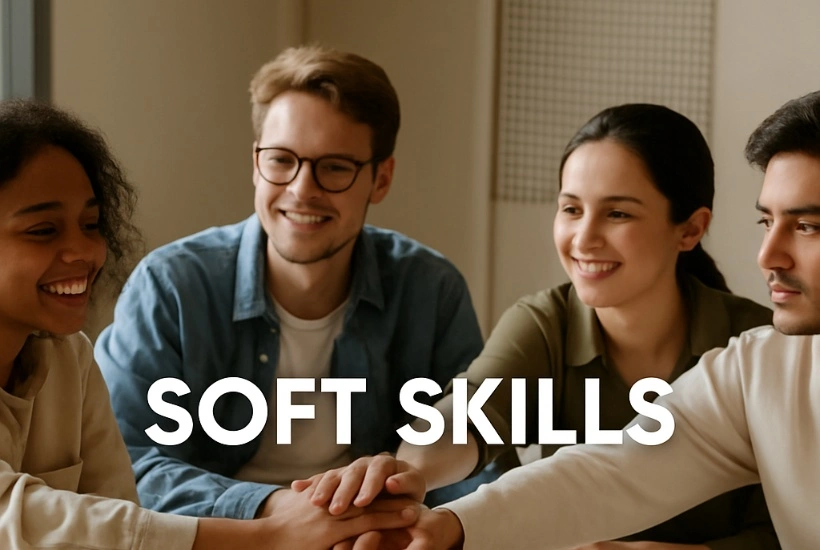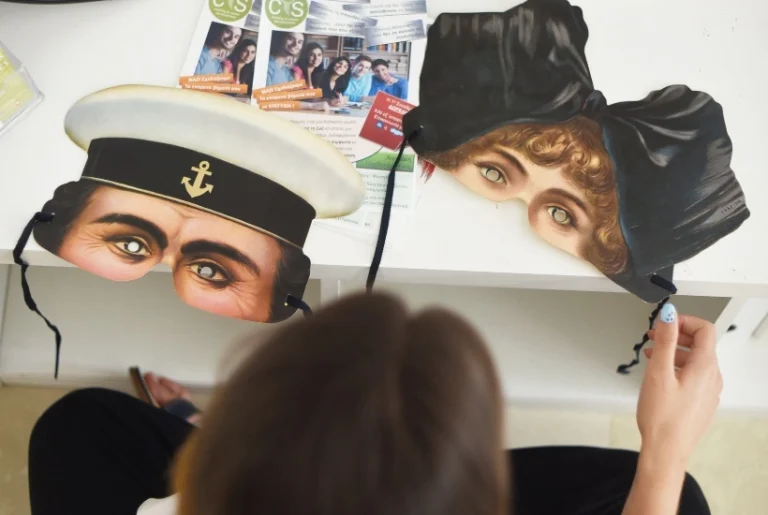In a world of rapid technological progress, uncertainty and constant change, one question keeps coming up: what makes a young person employable? So-called "hard skills" have traditionally played a leading role, but in recent years we have seen a shift. The horizontal/soft skills (soft skills) are no longer just "good to have" - they are necessary.
What are Soft Skills and why are they gaining ground?
Soft skills are those interpersonal, social and emotional skills that enable a person to cooperate, communicate, solve problems, take initiative and adapt. These are not 'abstract' concepts: teamwork, empathy, stress management, responsibility, creativity, leadership, critical thinking - these are all skills that shape the performance of an employee and directly affect the effectiveness of a team or a company.
The need for these was particularly reinforced after the COVID-19 pandemic, which now serves as a milestone on the educational and professional scene. According to research by FHW GSEVEE, the crisis has shown that technical competence without social skills is incomplete. Η adaptability, η resilience, η digital flexibility and the ability to work remotely are well and truly in the frame.
How do they evolve with the years and changes?
The need for soft skills is not static. It is evolving, following the tectonic changes in the way we live, work and socialise. Employers are no longer looking not just for "knowledge", but ability to continuous learning, solving complex problems and professional maturity in uncertain circumstances.
In this context, the interdisciplinarity (according to Taoussanis) becomes crucial: the ability to 'blend' skills from different fields - e.g. an engineer who understands social impacts or an economist with basic knowledge of psychology.
Greece's position: a picture of contrast
In Greece, as stated in the study of the INE GSEE, there is deviation from international standardswhile the EU is investing in strengthening horizontal skills, the Greek reality shows a delay in both their integration in educational programmes and their assessment in the labour market.
This is also related to the way employers' "wants" are shaped: many recognise the value of soft skills, but few recognise the value of soft skills. systematically request or the cultivate internally. At the same time, education - especially at the early levels - does not give a stable place to their development, despite good practices in individual programmes or innovative initiatives.
Where/how are soft skills cultivated?
The cultivation of soft skills does not belong to a single institution. It is shared responsibility and continuous process. Let's look at where and how they grow:
Family & Social Environment
- The first social experiences shape the emotional intelligence and the conflict management.
- Η language and the contact in the home is a foundation for future professional behaviour.
Game & Non-formal Learning
- Play, as highlighted in the research on 21st century skills, enhances teamwork, the self-activity and the creativity.
- Educational and theatrical games, role-playing activities, simulations are powerful tools.
Education
- Formal education must consciously incorporate the development of soft skills in curricula.
- Initiatives such as "Skills Workshops", creative writing or school-based career guidance can act as "bridges".
Career Counselling
- Career planning today is not only about studies or CV, but also about the strengthening the internal stock young people's self-awareness, decision-making and uncertainty management.
Next step: From theory to practice
The transition to a society where soft skills are recognised and nurtured requires systematic work, Cooperation and change of perception. We need to see soft skills not as "complementary", but as necessary ingredient for a labour market based on flexibility, creativity and continuous learning.
If we want young people ready for the future, let's start today. The skills that don't show up on a degree are the ones that ultimately make the difference.
Strengthen your own skills - Start today
Wondering what your strong soft skills are? Where do you stand in relation to market requirements? Contact the consultants of our organization for a personalised skills mapping and planning next steps. You can also register at our workshops for developing soft skills, designed for young people who want to stand out. The future begins with self-awareness and action - take the first step with us.
👉[Contact / Participation Form]
Bibliography
- Drakaki, E., & Karamanis, K. (2023). International developments in occupations and skills and the position of Greece. INE GSEE.
- FHW GSEBEE. (2022). The experience of the COVID-19 pandemic in adult education and training: dimensions, consequences, perspectives. Athens.
- Taousanis, C., "Schools, Studies & Panhellenic Examinations". 2020. Thessaloniki: Patakis
- ILO. (2018). Policies and skills systems for a future workforce. Global Commission on the Future of Work. http://www.ilo.org/global/topics/future-of-work/WCMS_618170/lang–en/index.htm



